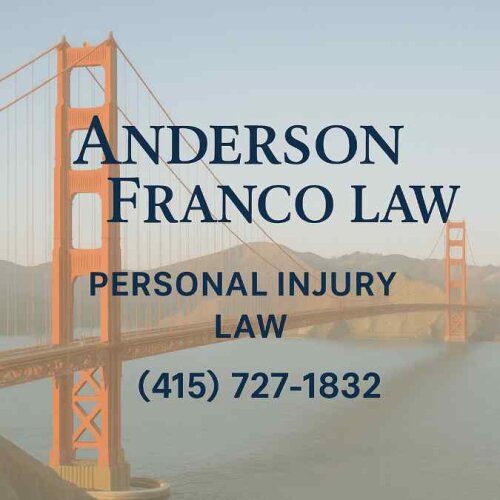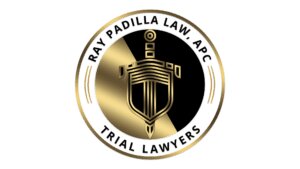Best Personal Injury Lawyers in California
Share your needs with us, get contacted by law firms.
Free. Takes 2 min.
Or refine your search by selecting a city:
List of the best lawyers in California, United States
About Personal Injury Law in California, United States
Personal injury law in California covers civil cases in which one person suffers harm due to the wrongful act or negligence of another. The goal is to provide compensation for physical, emotional, and financial injuries resulting from accidents or intentional wrongdoing. These cases may involve car accidents, slip and falls, defective products, medical malpractice, dog bites, or other incidents that cause harm. California's personal injury laws set out clear guidelines for determining fault, assessing damages, and seeking justice for injured parties.
Why You May Need a Lawyer
There are several scenarios in which you may need a lawyer instead of handling a personal injury claim on your own. Insurance companies often try to minimize claims and may not offer a fair settlement. You might face complex legal procedures, unclear liability, or disputes over the extent of your injuries. If your case involves severe injuries, long-term disability, or a potential for significant financial compensation, an experienced attorney can help protect your rights and maximize your recovery. Lawyers can gather evidence, negotiate with insurers, and represent you in court if necessary.
Local Laws Overview
California’s personal injury laws have some unique features worth understanding:
- California follows a pure comparative negligence rule. This means that if you are found partially at fault for your injury, you can still recover damages, but your compensation is reduced by your percentage of fault.
- The statute of limitations for most personal injury cases is two years from the date of the injury. If the injury was not discovered right away, you have one year from the date of discovery.
- For claims against government entities, special rules apply, including stricter notice and filing deadlines, often as short as six months.
- Damages may include medical costs, lost wages, property damage, pain and suffering, and, in extreme cases, punitive damages.
- California law requires drivers to carry a minimum amount of auto liability insurance, which affects compensation in car accident cases.
- There are no caps on most types of personal injury damages, except in certain medical malpractice cases.
Frequently Asked Questions
What should I do right after a personal injury accident?
Seek medical attention for any injuries, even if they seem minor. Report the incident to the relevant authorities and document the scene with photos, videos, and witness information. Do not admit fault and avoid extensive discussions with insurance companies until you consult a lawyer.
How long do I have to file a personal injury claim in California?
You generally have two years from the date of the injury to file a lawsuit. In some cases, such as when the injury is not discovered immediately, you have one year from the date of discovery. Claims against government entities may have much shorter deadlines.
What compensation can I recover in a personal injury case?
You may recover compensation for medical bills, lost wages, loss of earning capacity, property damage, pain and suffering, emotional distress, and in some cases, punitive damages meant to punish extreme wrongdoing.
Will my case go to trial?
Most personal injury cases are settled before trial through negotiations with insurers or at mediation. However, if a settlement cannot be reached, your lawyer may recommend taking your case to court.
How is fault determined in California personal injury cases?
California uses the comparative negligence system. This means multiple parties can share responsibility. Your compensation will be adjusted based on your percentage of fault, if any.
Do I need a lawyer for a minor injury?
While simple cases with minor injuries may be settled without an attorney, legal help is recommended if your injuries are moderate or severe, if there are liability disputes, or if you feel pressured to accept a low settlement.
How much does it cost to hire a personal injury lawyer?
Most California personal injury lawyers work on a contingency fee basis. You do not pay upfront; they receive a percentage of the settlement or award if you win your case.
What should I bring to my first meeting with a lawyer?
Bring all evidence and documents related to the injury, including medical records, accident reports, insurance policy details, photos, and any correspondence with the other party or their insurer.
Can I still recover damages if I was partially at fault?
Yes. Under California’s pure comparative negligence law, you can recover compensation even if you were mostly at fault, although your recovery will be reduced by your percentage of fault.
Is there a limit to the damages I can recover?
There are generally no caps on economic or non-economic damages in California personal injury cases, except for most medical malpractice cases, which have specific limits.
Additional Resources
Here are some helpful resources for people seeking guidance or more information on personal injury in California:
- California Department of Insurance - Provides information on insurance claims and consumer rights.
- California Judicial Branch - Offers resources and guides on civil lawsuits, including small claims court.
- State Bar of California - Helps the public find certified lawyers and legal aid services in their area.
- Local legal aid organizations - Nonprofit groups that offer free or low-cost legal help for qualifying individuals.
- Consumer protection agencies - Assist with complaints related to products or services causing injury.
Next Steps
If you have suffered a personal injury in California, consider the following steps:
- Prioritize your safety and health. Seek necessary medical care immediately.
- Report the incident to authorities and gather as much evidence as you can.
- Document all of your losses, including medical expenses, time off work, and pain and suffering.
- Consult with a qualified personal injury lawyer as soon as possible to protect your rights and avoid missed deadlines.
- Follow your lawyer’s advice and avoid discussing your case with the opposing party or their insurer without legal guidance.
- If cost is a concern, look for attorneys who offer free consultations or work on a contingency basis.
- Keep all records organized and stay involved in your case to ensure the best possible outcome.
Lawzana helps you find the best lawyers and law firms in California through a curated and pre-screened list of qualified legal professionals. Our platform offers rankings and detailed profiles of attorneys and law firms, allowing you to compare based on practice areas, including Personal Injury, experience, and client feedback.
Each profile includes a description of the firm's areas of practice, client reviews, team members and partners, year of establishment, spoken languages, office locations, contact information, social media presence, and any published articles or resources. Most firms on our platform speak English and are experienced in both local and international legal matters.
Get a quote from top-rated law firms in California, United States — quickly, securely, and without unnecessary hassle.
Disclaimer:
The information provided on this page is for general informational purposes only and does not constitute legal advice. While we strive to ensure the accuracy and relevance of the content, legal information may change over time, and interpretations of the law can vary. You should always consult with a qualified legal professional for advice specific to your situation.
We disclaim all liability for actions taken or not taken based on the content of this page. If you believe any information is incorrect or outdated, please contact us, and we will review and update it where appropriate.
Browse personal injury law firms by city in California
Refine your search by selecting a city.















